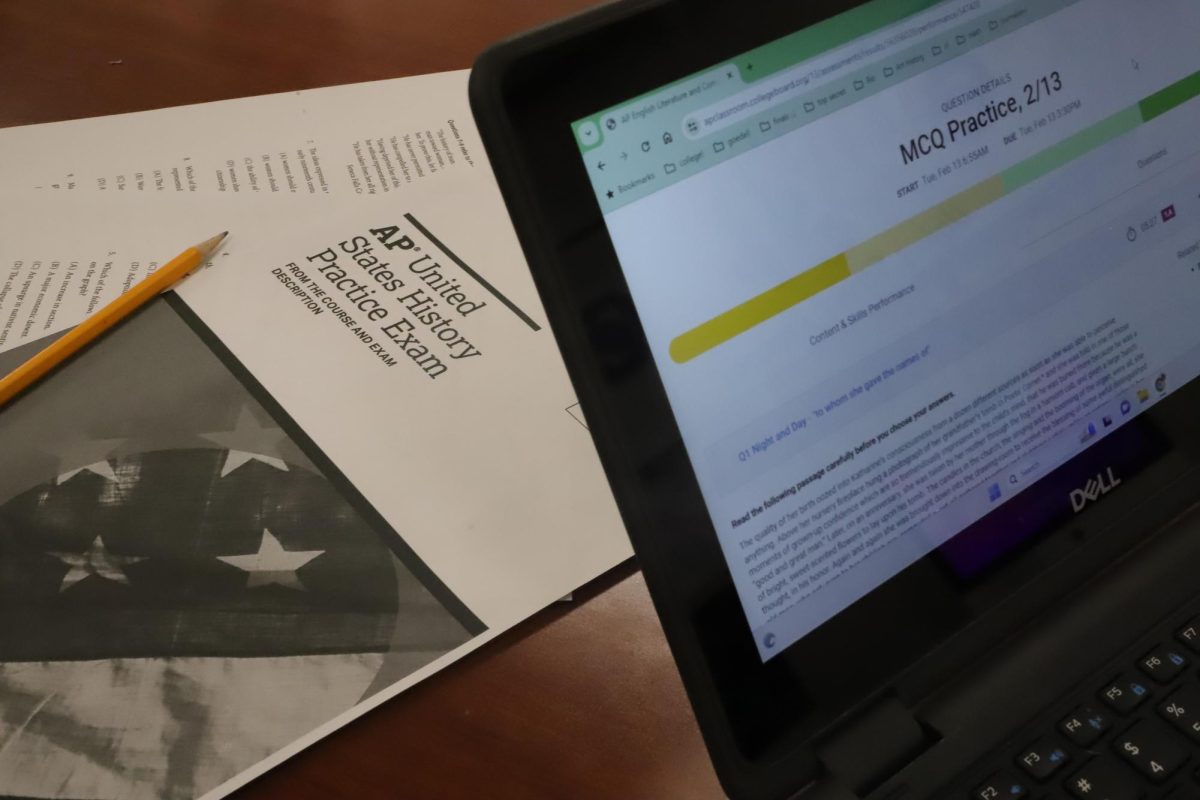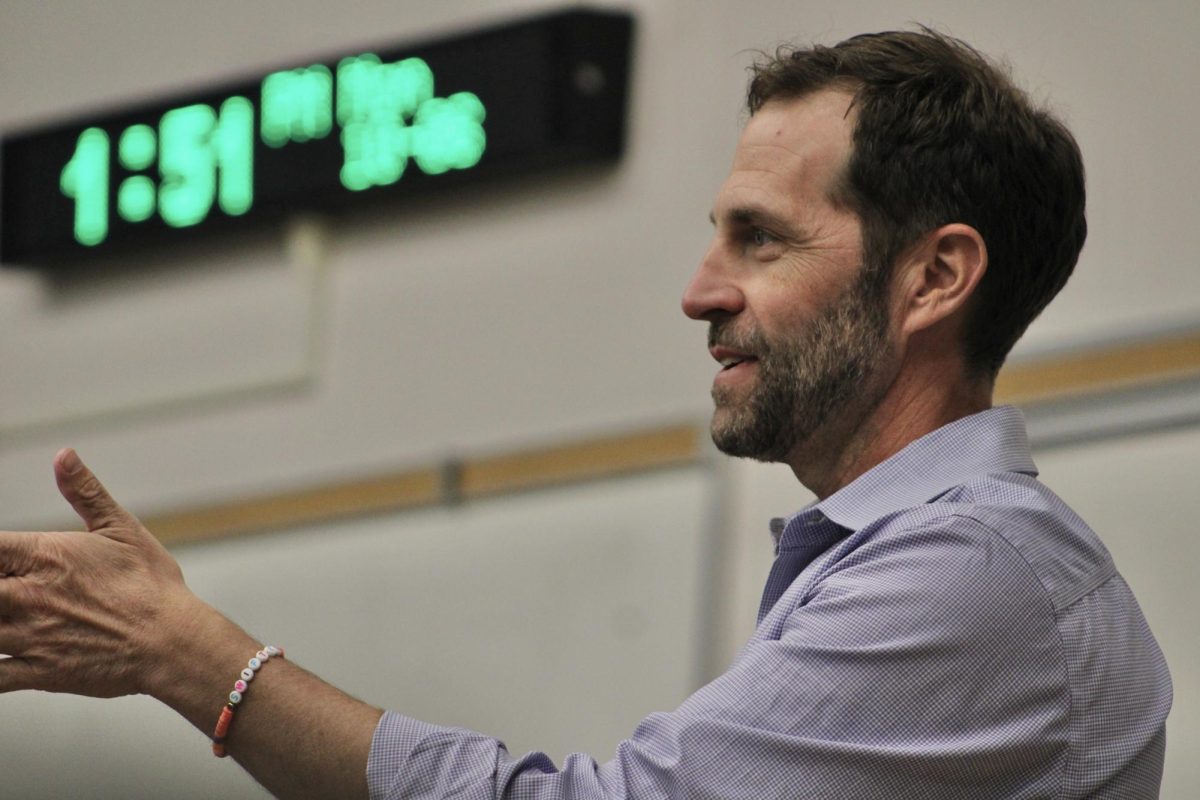Seven AP tests are becoming fully digital at Creek by 2025, starting with three tests for the spring of 2024.
The first three all-digital AP tests this May will be AP European History, AP Seminar, and AP Computer Science Principles. In the spring 2025 AP tests, AP Literature and Composition, AP English Language and Composition, AP United States History, and AP World History will become fully digital at Creek. AP African American Studies and AP Psychology are becoming fully digital across the country, but are not currently offered at Creek.
“We’re only going to offer three [digital AP tests] this year just to see what that looks like, what the platform is like, and how it works with our systems here with student devices,” Assistant Principal Krista Keogh said.
AP European History and AP Seminar are viewed as easier AP tests to start the school off with, due to the smaller number of test takers. AP Computer Science Principles was “a natural thing to test” digitally, according to Keogh.
“We tried to pick a few areas that were not enormous tests, but that enough kids would take it that we could get some feedback on, ‘What was your experience was like, what do we need to change about that?’” Keogh said.
In an email sent January 18th announcing that these changes would be taking place, College Board listed the reasons for why these AP tests were becoming fully digital.
“Digital exams are the future of AP testing,” College Board said in the email. “They remove the need to manage paper exam booklets on exam day and reduce the risk of exam security issues and lost exam responses.”
Some AP teachers see the benefit to making their classes’ AP test fully digital. AP Literature and Composition teacher Jenna Chapman finds that her students have become more digitally native, which could help them succeed on the exam.
“I think that handwriting is actually a lot harder for students than sitting down and typing,” Chapman said. “I think that’s more natural for them to get their thoughts out.”
Some students at Creek also think that the shift to digital AP tests will be beneficial for them, and that using a computer will be easier than testing on paper.
“I think that I type way faster when I use a computer and I can get a lot of things done when I do it on my computer,” Senior Madi Keogh said.
Students also find that they can spend less time worrying about their handwriting, giving them more time to finish their test.
“A big part of the AP tests is that there’s a time crunch. So then you can spend less time actually worrying about just writing,” Senior Josiah Moham said. “I think I’m big time in favor of the digital side.”
Some teachers at Creek also find that the environmental benefit of not printing out thousands of AP testing booklets is appealing to them.
“Less use of paper means less waste,” AP Seminar and AP World History teacher Jodi Best said. “Leaving comments digitally and not dealing with messy and unreadable handwriting is also a plus.”
For some, the College Board’s decision to shift from physical testing to digital testing is an unwelcome change; they find that the content they teach will not translate as well on a computer as it does with pencil and paper.
“I think in order to meaningfully engage with text, you have to be able to annotate and write on it,” Chapman said. “I think the written exam obviously lends itself to that.”
This shift in the testing format also changes the way that teachers will have to prepare their students for the AP test, especially since teachers have never had to teach for a digital AP test until now. There are still a lot of questions as to how the test will work, like whether or not students can annotate their texts.
“Would the functionality online be highlighting capable, can you annotate, would you be able to mark the meter of a line?” AP Language and Composition teacher Mhari Doyle said. “That’s something that they need to be preparing the teachers for because that’s going to vastly change how we teach annotation.
AP US History teacher Ben Singh prefers to have physical copies of tests for his students, and provide them with the option for those who wish to utilize it.
“I make a copy of the test for every single kid so they can just mark them up. And some kids really take advantage of that. I’m gonna have to get away from that,” Singh said. “Sure, it’ll save paper, but I think we’re gonna see a decline. I don’t know how dramatic it will be, but I think we’re gonna see overall scores dip in some way.”
Some teachers at Creek may not agree with the decision to switch from paper AP tests to digital tests, but they hope that students will be able to adapt to the change despite what they think.
“I think the more we start to practice with those tools and put them in the hands of kids and give them the opportunity to do it, hopefully, the more comfortable students will be with it,” Krista Keogh said.









